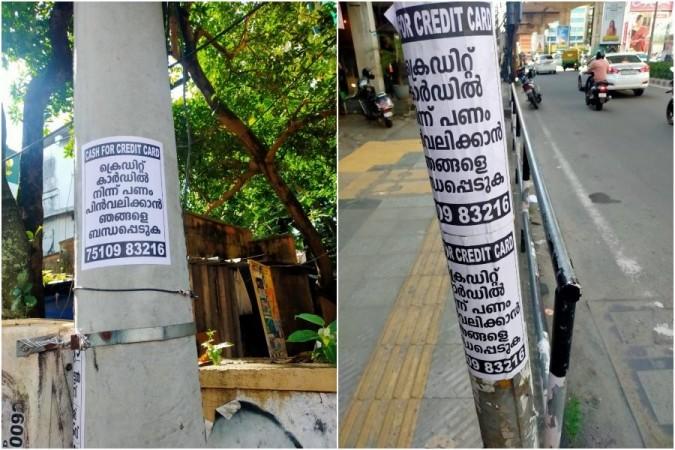Kerala is widely considered the most literate state in India with people having adequate knowledge of emerging technologies. Post the internet revolution primarily driven after the introduction of Jio, most of the Keralites are avid internet users, and now, it is very hard to see a Keralite without a smartphone. As internet usage in Kerala is getting elevated to new levels, cybercriminals who hide in the dark online spaces are using their clandestine clutches to extort money from people using new techniques people have never heard of.
Then lotteries, now credit cards and Facebook messages
In the earlier days, people used to receive emails stating that they have won a huge amount of money from lotteries. The senders of these fake emails used to ask for the personal details of the receiver, and they demand a small sum of money to claim the large winning sum which will never be credited. A few years back, several people in Kerala had lost money by replying to these emails, but a majority of these cases went unnoticed due to the guilty feeling of the victim.

As authorities rolled out a campaign against these money-winning emails aimed to extort cash from people, internet users became much more vigilant, and they gained that extra sense to stay away from these kinds of mind-blowing fake promises and offers.
And now, cybercriminals are adopting new techniques to extort money from internet users. A few months back, Kerala was shocked to see a fake Facebook profile in the name of ADGP Vijay Sakhare. The incident came to the limelight when Advocate Jiyas Jamal who himself is a cybersecurity expert received a message on his Facebook page from the fake account of Sakhare.
In the message, the sender requested Advocate Jiyas Jamal to send Rs 10,000 very urgently. Even though the fake account had the same profile picture as the ADGP, Jiyas Jamal became suspicious, and he informed the authorities. With the help of Cyberdome, police launched a probe, and two people from Mathura in Uttar Pradesh were arrested. Interestingly, one of the accused who goes by the name Mushtaq Khan was the principal of a school and an associate of a nationalized bank.
"Most of these cyber crimes go unnoticed, as people are a little hesitant to report it to the police because of shame and guilt feeling. In Vijay Sakhare's case, the accused was a school principal, which means educated people are targeting people with less internet literacy to loot money. Most of these cybercriminals are not from Kerala, and they are operating from other states. However, I strongly believe that they have some strong links within Kerala, and without that, they would not be able to operate these frauds with such perfection," said Jiyas.
Recently, another group of cybercriminals did a very different act to loot money from the public. A poster which carried the message "Please call this number if you want to withdraw money from credit cards'' appeared on walls and on electric posts in Cochin. The police department soon issued a warning and revealed that these are all part of a criminal syndicate. The team behind this racket will ask for the credit card and CVV number of people, and this confidential data could be easily misused in the future.

Proper awareness needed
Advocate Jiyas Jamal has been spearheading a campaign against these cyber frauds in Kerala over the past few years. He has been closely cooperating with cyber cell of the state and is also providing legal aid to the victims.
"Everyone should become a responsible cyber citizen. People should understand that cyber safety is also part of our lives. We should also try to make sure that our knowledge regarding cyber security should be passed on to other people around us. We have already started cyber awareness classes in schools and colleges. During this lockdown period, with the assistance of the Kerala police, we are trying our best to give training to student police cadets. Our ultimate aim is to ensure that no one will become a victim of cyber fraud again in the state," added Jiyas.

Jiyas also made it clear that the human mind's ultimate greed to get anything and everything for free is playing a crucial role in the rise of cybercrimes. According to Jiyas, several people with high education are also falling into the traps of these cyber criminals which is an alarming fact.

















